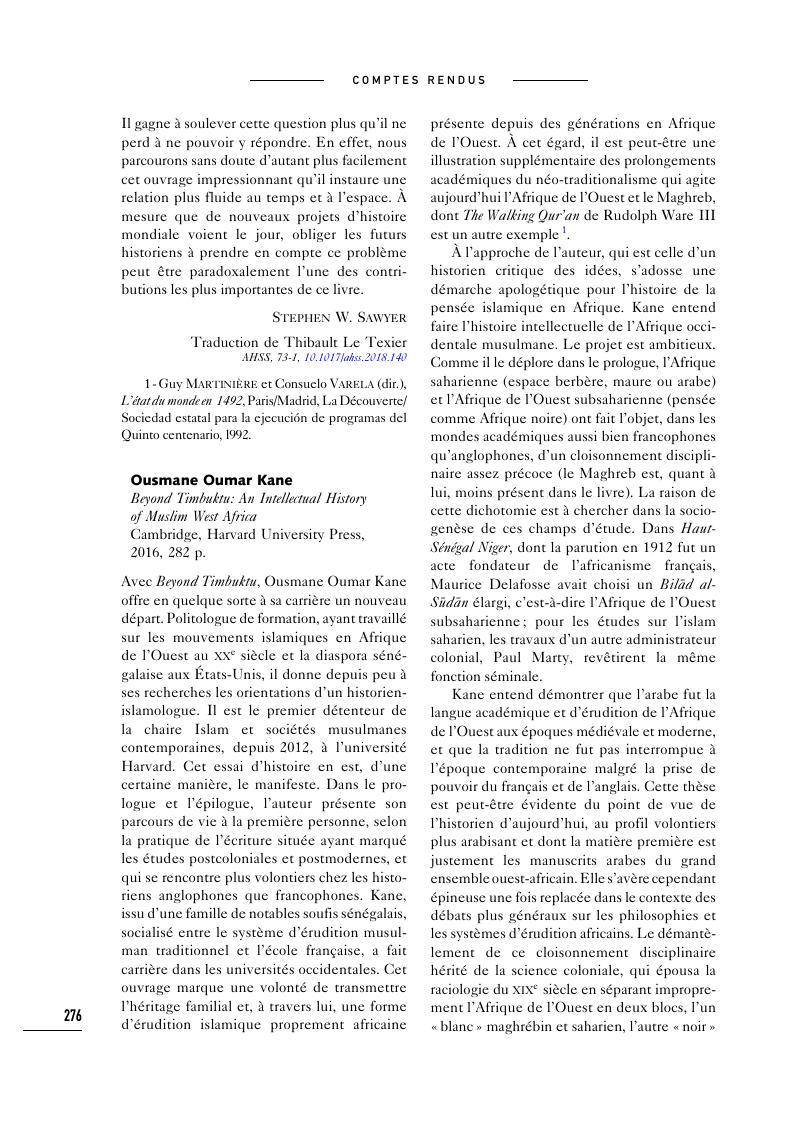Article contents
Ousmane Oumar Kane Beyond Timbuktu: An Intellectual History of Muslim West Africa Cambridge, Harvard University Press, 2016, 282 p.
Published online by Cambridge University Press: 24 May 2019
Abstract

- Type
- Empires, colonies, connexions
- Information
- Copyright
- © Éditions de l'EHESS
References
1 Ware III, Rudolph T., The Walking Qur’an: Islamic Education, Embodied Knowledge, and History in West Africa, Chapel Hill, University of North Carolina Press, 2014Google Scholar.
2 Nobili, Mauro et Mathee, Mohamed Shahid, « Towards a New Study of the So-Called Tārīkh al-fattāsh », History in Africa, 42, 2015, p. 37-73Google Scholar.
3 Levtzion, Nehemia, « A Seventeenth-Century Chronicle by Ibn al-Mukhtār: A Critical Study of Ta’rīkh al-fattāsh », Bulletin of the School of Oriental and African Studies, 34-3, 1971, p. 571-593Google Scholar.
4 Goody, Jack, « Restricted Literacy in Northern Ghana », in Goody, J. (dir.), Literacy in Traditional Societies, Cambridge, Cambridge University Press, 1968, p. 198-199Google Scholar.
- 1
- Cited by




